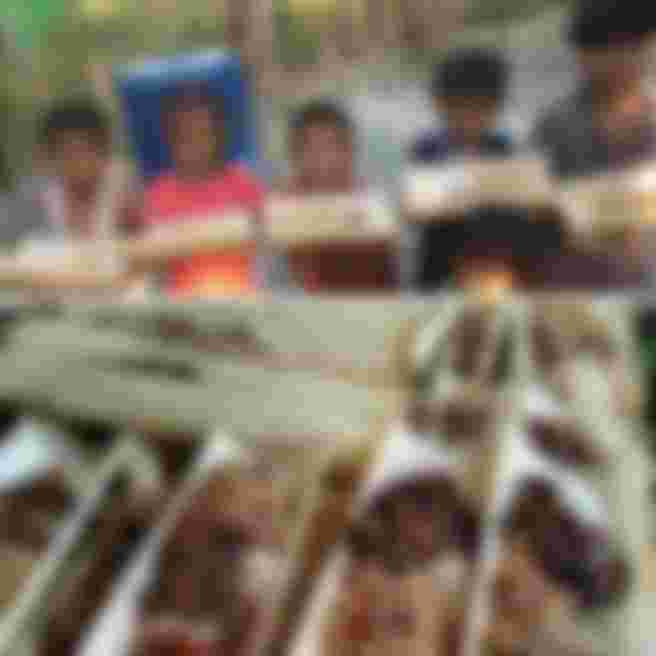When there's fire, there's smoke. And when there's smoke, there's watwat.

Village life in our village was simple when we were younger. Farming is the main source of livelihood. The small portions of land one inherits from his elders is enough to feed a family. It is because of the diligence and hard working characteristics of the people. They don't mainly rely on the small portion of rice paddy but after the planting season, men go out of the village to look for work. Some do logging because our mountains are rich in quality pine trees.
In my young mind I can't tell if we were poor, because we eat three times a day or more if we like to. We go to school and enjoyed childhood. We have clothes to cover us up and a sturdy house to shelter us from the rain and sun. We can't afford the luxuries in life. Simple but we were happy.
In times of weddings, numbers of heads of pig and some water buffalo (carabao) or cow were butchered. Big pots of rice were cooked. The whole community is invited to the occasion.
The big chunks of meat whether cooked or raw is what we call watwat. In the olden times the tradition of butchering pig as an offering to the departed loved ones were very much alive, these big chunks of meat were distributed most especially to the elders who performed the ritual. However, it is not only during rituals that this is observed but also during occasions like junu -the traditional weddings of long ago. It was adapted up to this age. It was considered custom and tradition not only in our village but throughout the lands of the Cordillera.
The cooked ones were distributed as viand. The barks of banana were cut into foot long and that is what we used as plates which we used to put rice. Then wait for the watwat to be served. It was as plain as it is, simply boiled with no extra ingredients.

Time goes by that the village life is gradually changing. It was due to the hardworks and sacrifices of parents to be able to send their children to college and the children likewise do their best in school, in return.
People have learnt different recipes that on occasions additional viands were added on the platter. Nevertheless, the watwat- simply boiled was never absent.
In other village or in the town communities where my family migrated when I was in grade six, I have observed that they don't prepare like we do during weddings. Rice were cooked minimally, just enough for the community and visitors to eat. Here in our village, they serve too much rice that when a family of 5 will all go to get food, the rice would be enough to supply 3 days or more if only it would not spoil. And weddings here served two meals, one at lunch and at dinner while on other places they only serve lunch. Rice overflowed that it was only fed to livestock.
I was left thinking and sometimes discussed with others why the need to cook so much rice and not only what is enough for community and visitors consumption. Imagine rice grains were taken from a whole rice granary to be milled. The heads of pigs and carabao butchered is also too much but it was not all served. It was because some of the raw meat or watwat were divided to the elders who were able to have their children married and wed the same way, if I'm not mistaken.
Closing thoughts
It was the parents of both parties who fund the wedding and not the couples who are getting married. Though in some other places, it was the couples who fund their wedding. In our place, the couples may help in some of the finances but not to the point where they will be left indebted. So I was left thinking again why the need to make extra extra "gastos" and pressure themselves for overflowing foods. Parents can give the extra money to the newly weds,instead.
What is most fortunate about us here is the bayanihan which is very much alive. Everyone in the community helps in the preparation from wood cutting to rice milling. From church decoration to cooking to serving the food until every rite is done. And because most women here already knew how to cook and prepare cakes like a pro, they do the task. While on other places, the couples need to pay for every person who do the tasks which is really a burden for them.
I got an idea of writing this b ecause of the upcoming wedding this Saturday. I will try to shoot some photos of the lines of pots for rice and the lines of big kalan for meat and attach it here.
Photo credits to rightful facebook user
4/28/21
z_graeden


i can relate to the scarcity of pork now 😂😂😂 we feel rich whenever there's pork in the fridge these days, bit to only have that on occasions would be sadder